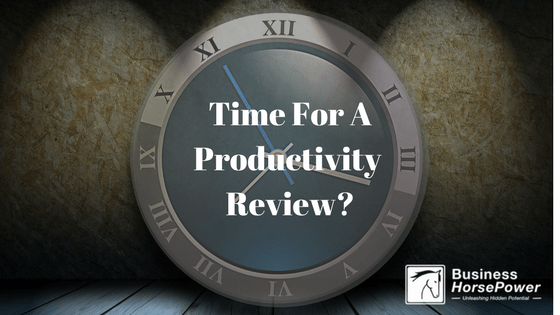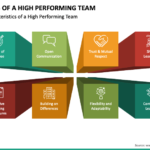With the first six months of the year very nearly completed, are you on track to achieve all your goals for 2017? If not maybe its time for a productivity review to assess what you are really doing every day. Are you spending time on high value income producing activities everyday, or are you getting distracted by the loads of important and urgent tasks that come across your desk, and into your email box each day.
I’ve spent the first half of the year honing my productivity skills with a mentor and it has been time well invested. I now have a new approach to how I block and tackle my days. I’m now achieving more and also having more fun doing it. So here are some tips to get you back on track.
- Take stock of where you are. You need to know where you are right now and where you want to get to in order that you can figure out the next step. Just think about it. If you are in Paris and you have no idea of where you want to visit, it doesn’t matter what directions you are given, they won’t get you to where you wnat to go. However, if you are in Paris and know you want to visit the Eiffel Tower then with some good help and advice someone can show you where you are the range of options to get there. A mentor can do just the same for you in your business, showing the plan to help you achieve your results based on where you are right now.
- Keep track of your most important commitment—the one you make to yourself. Productivity guru David Allen, author of Getting Things Done, contends that commitments to yourself are qualitatively different than those you make to others because your conscious mind can essentially “lose track” of them. While your boss will remind you of your commitments to her, your mind doesn’t know your email address. What Allen calls your “mental RAM” will continue to expect those commitments to be fulfilled, but you may have forgotten about them amidst the clamour of your work life. The result is the worst kind of stress, because you feel the pressure but you can’t quite figure out where it’s coming from. In his most recent book, Ready for Anything: 52 Productivity Principles for Work and Life, Allen offers several effective tips for capturing these “open loops” and closing them, either by completing, canceling or renegotiating them.
- Practice saying “No.” Do you find that your work has bled almost seamlessly into your personal life? One of the answers to this problem is often the word, “No.” You have to acquire the skill to utter that magic word in order to create some boundary around your work and create the opportunity for personal relaxation and renewal. The key is to steadfastly turn down obligations unless they further your priorities.
- Invest in your health. This goes without saying, right? Actually, for most of us, it also goes without doing. Yet, apart from the obvious benefits of better health, increasing your physical well-being can yield tremendous benefits in terms of your productivity at work. In the view of Jim Loehr and Tony Schwartz, authors of The Power of Full Engagement, it is managing your energy—starting with your physical health, including diet, sleep and exercise—that is more important than managing time in improving your personal productivity.
- Protect your mornings. Author and motivational speaker Brian Tracy refers to the “magic hour” after you get up—a time to protect yourself from the news and other distractions and concentrate on your day: What you are going to accomplish and exactly how you are going to do it. Many experts report that most people are naturally more creative and energetic in the mornings, which is an argument for applying yourself to your most challenging tasks then and saving the routine housecleaning until later in the day, one of the notions at the heart of the Morgenstern’s Never Check Email in the Morning.
- Pick a system—any system—just pick one. How many different places do you squirrel away information? Email? Yellow pads? Daily planner? PDA? Post-it Notes stuck like a yellow halo around your computer screen? It might take a serious investment of time to sort through the options, but decide on one…and then use it. Each of the productivity experts referenced here, and the hundreds of others in the bookstore, will claim their system is the best. But most of them also acknowledge that any system that you actually use is going to be better than no system or the chaotic structure that so many of us have fallen into. As Allen puts it, in choosing an organiser, whether high-tech or a stack of 3×5 cards, go for “simplicity, speed and fun.”
- Fun? Wait, did you say “fun”? Another important tune-up is to get reconnected with what’s happening to your personal life. Maintaining your personal relationships, relaxing and—gasp!—having fun are critical to your mental health, which, in turn, affects your energy, creativity and productivity.
But the most important tip of all is to build regular review and reflection time into your calendar. There are countless ways you can improve your productivity, lower your stress and enhance your physical and emotional well-being. But they all require some focus, some thought and some energy. The key is to treat the process of personal renewal itself as a priority. To use Stephen Covey’s classic “maintenance” metaphor, think of this as “sharpening the saw.” Schedule it. Place it in the priority queue, assign time to it, and actually give it some of your attention. Your time will be well spent

Julia Felton (aka The Business Wrangler) is the founder of Business HorsePower. Business leaders, entrepreneurs and executives hire her to accelerate their business performance by harnessing the energy of their people to work more collaboratively together. By aligning purpose with actions the team achieves exponential results as everyone starts pulling in the same direction.
Julia believes that business is a force for good and through designing purpose-driven businesses that leverage the laws of nature, and the herd, you can create businesses founded on the principles of connection, collaboration and community that make a significant impact in the world.






